We create gardens using permaculture designs that not only produce organic crops but also support and protect our local ecosystems.
Learning along the way with local farmers, we implemented a model of agriculture that follows the example of nature. We use different techniques of composting, water retention, intercropping and homemade recipes for pest control, to increase productivity, respecting the natural biological processes of the land and helping its regeneration.
In this way we not only harvest delicious and fresh crops but also provide nutritional fodder for our livestock.
Our organic gardens use the principles of permaculture to produce healthy foods that are part of the delicious dishes we prepare directly from the ranch to your table, and also provide nutritional fodder for our livestock.
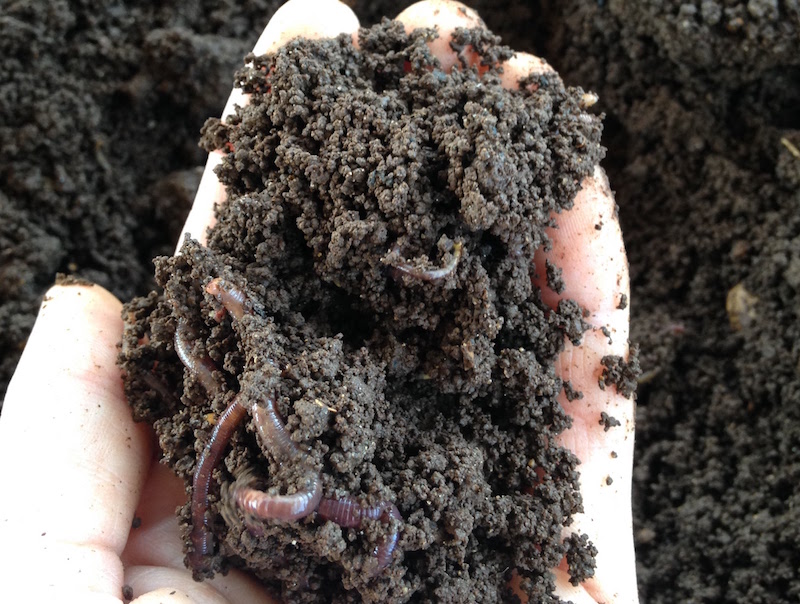
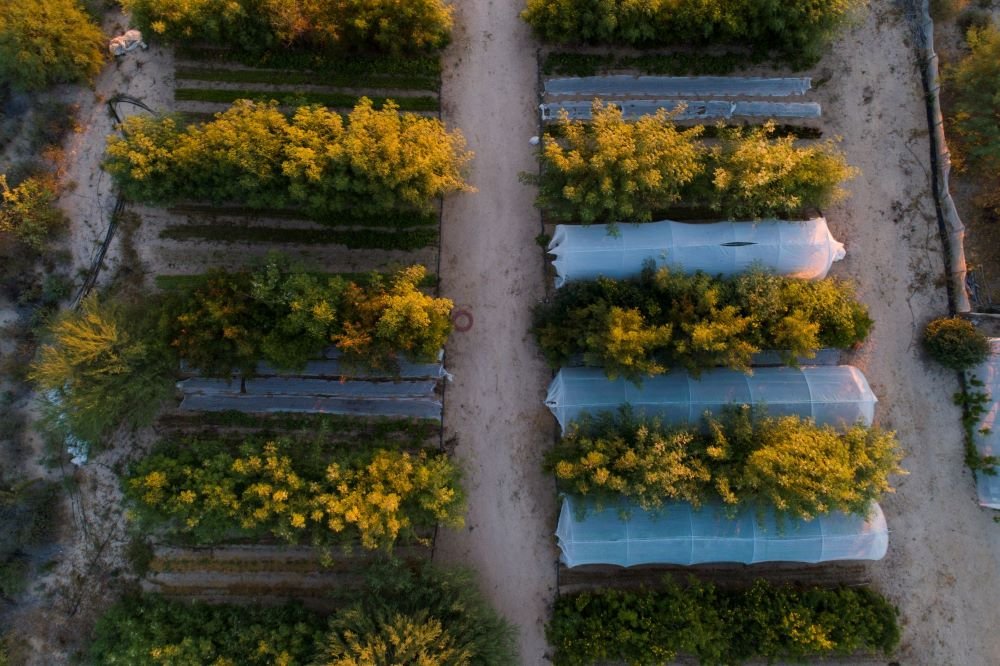
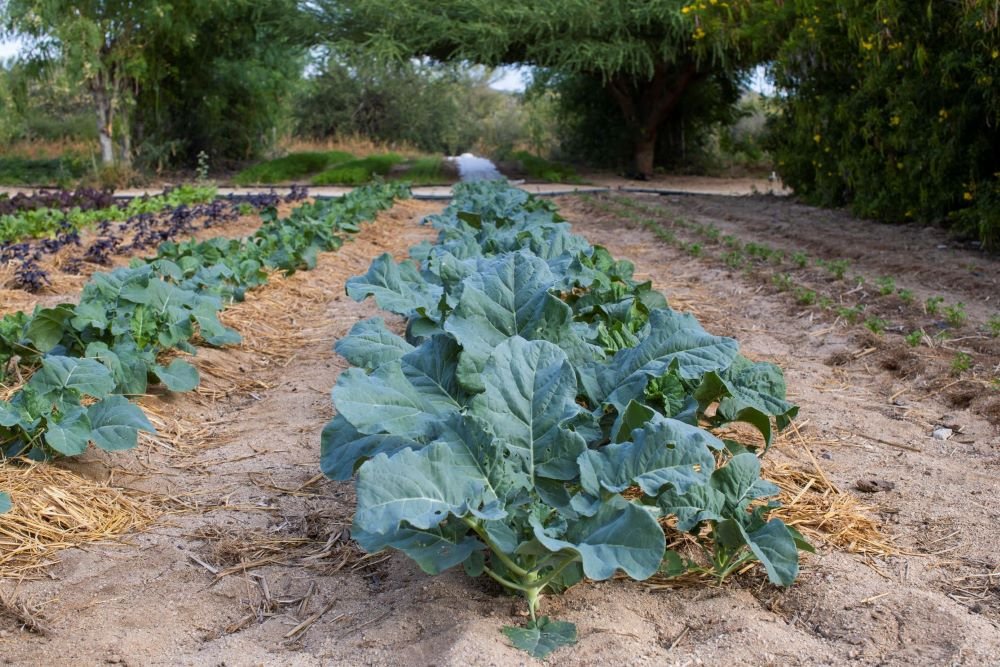
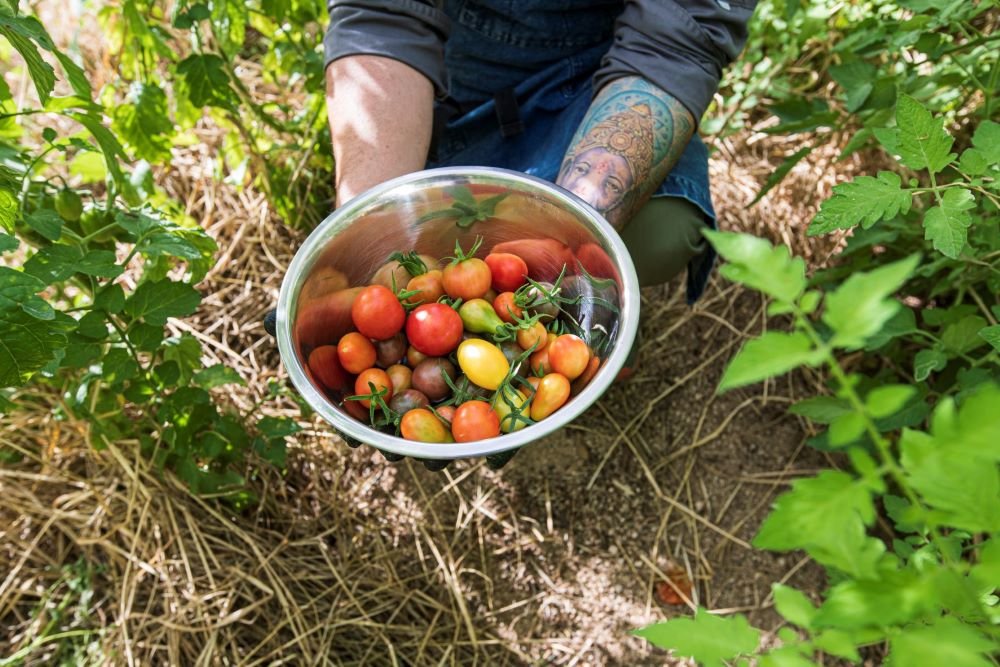
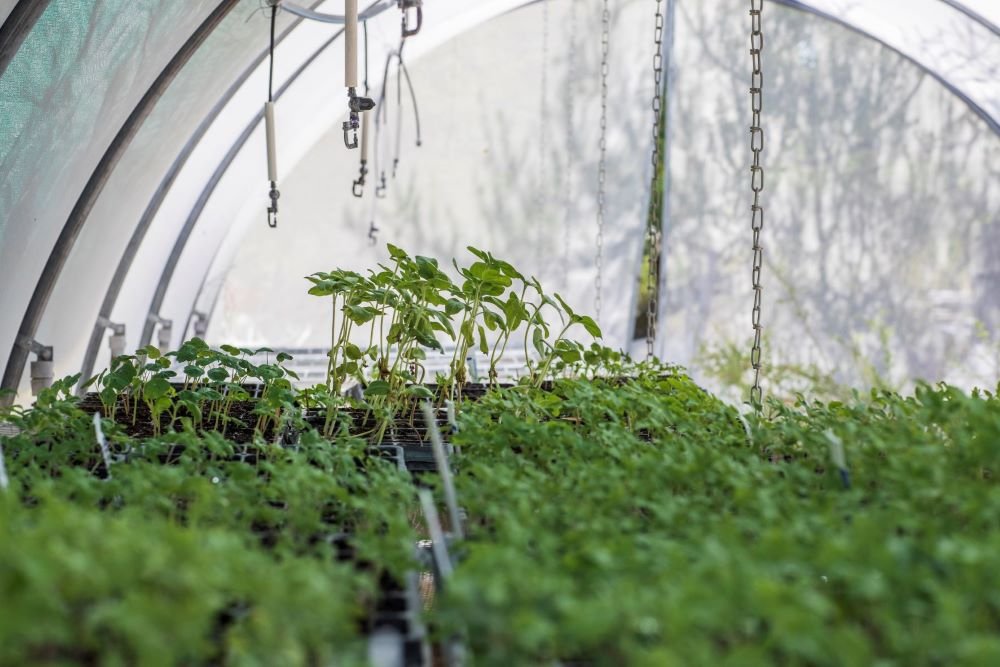
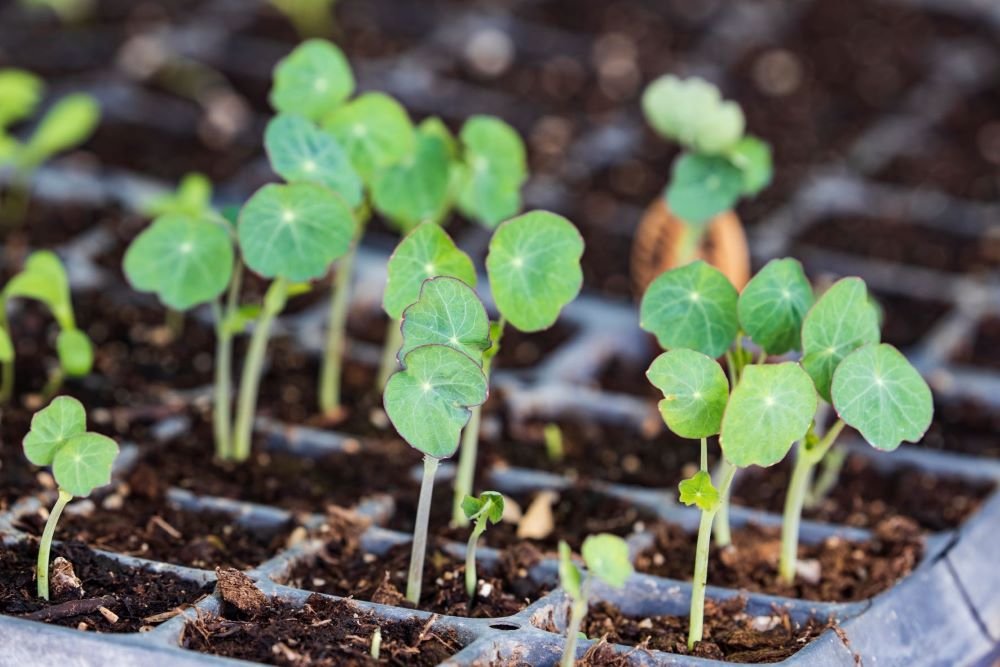
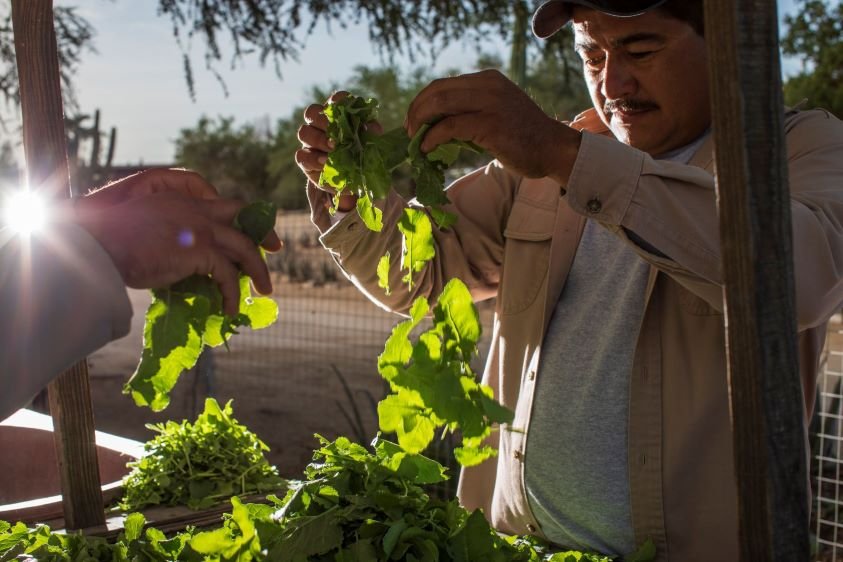
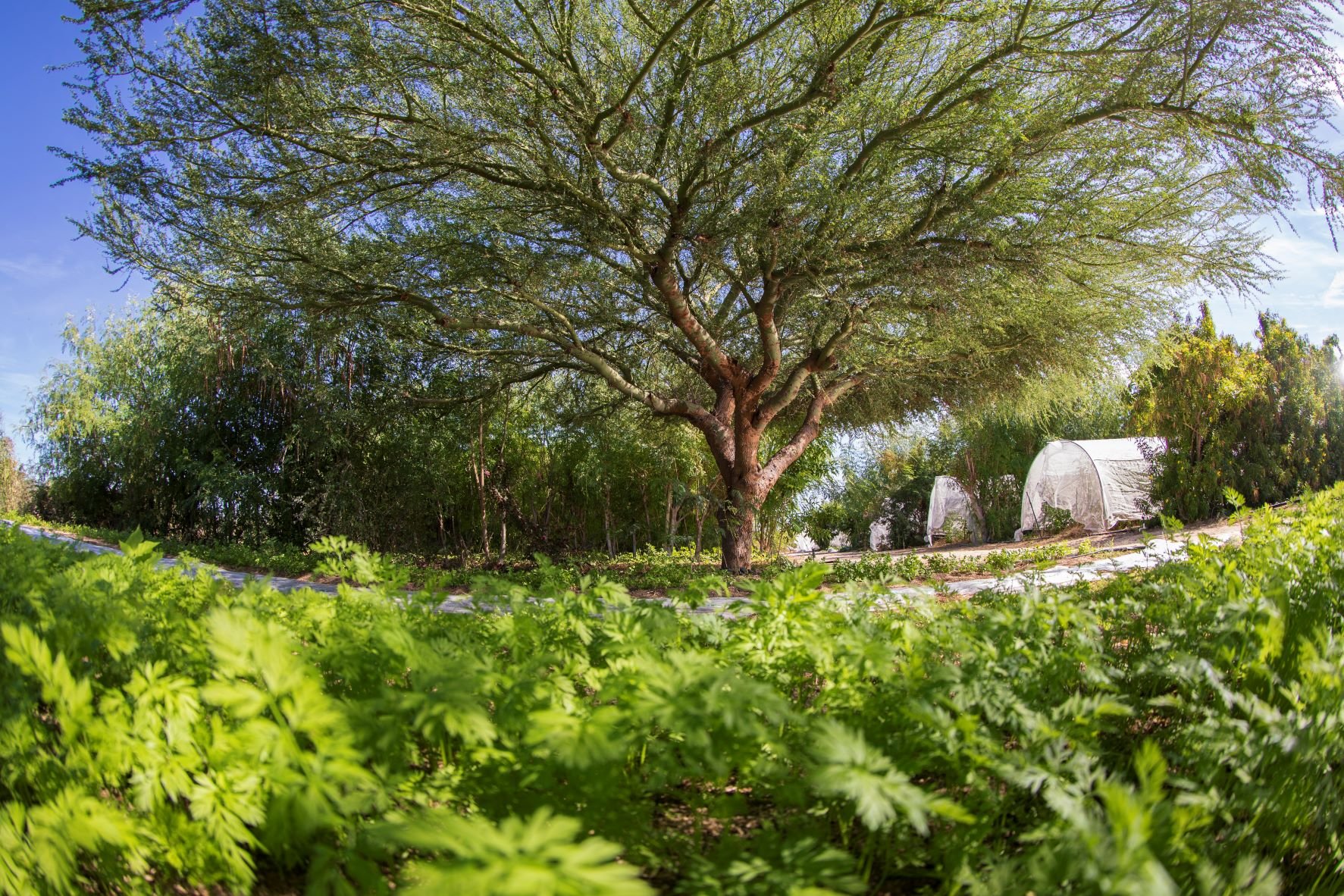

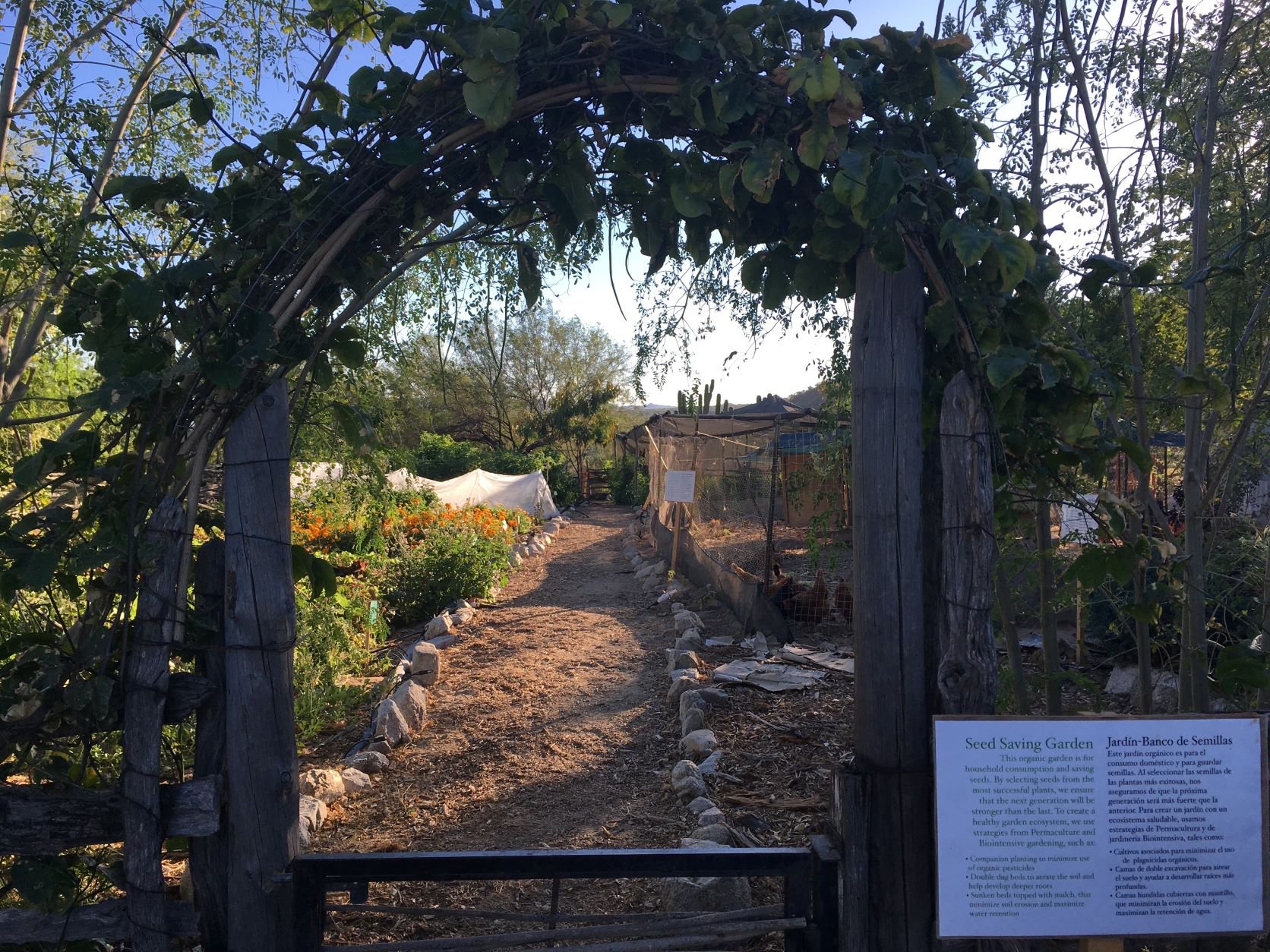
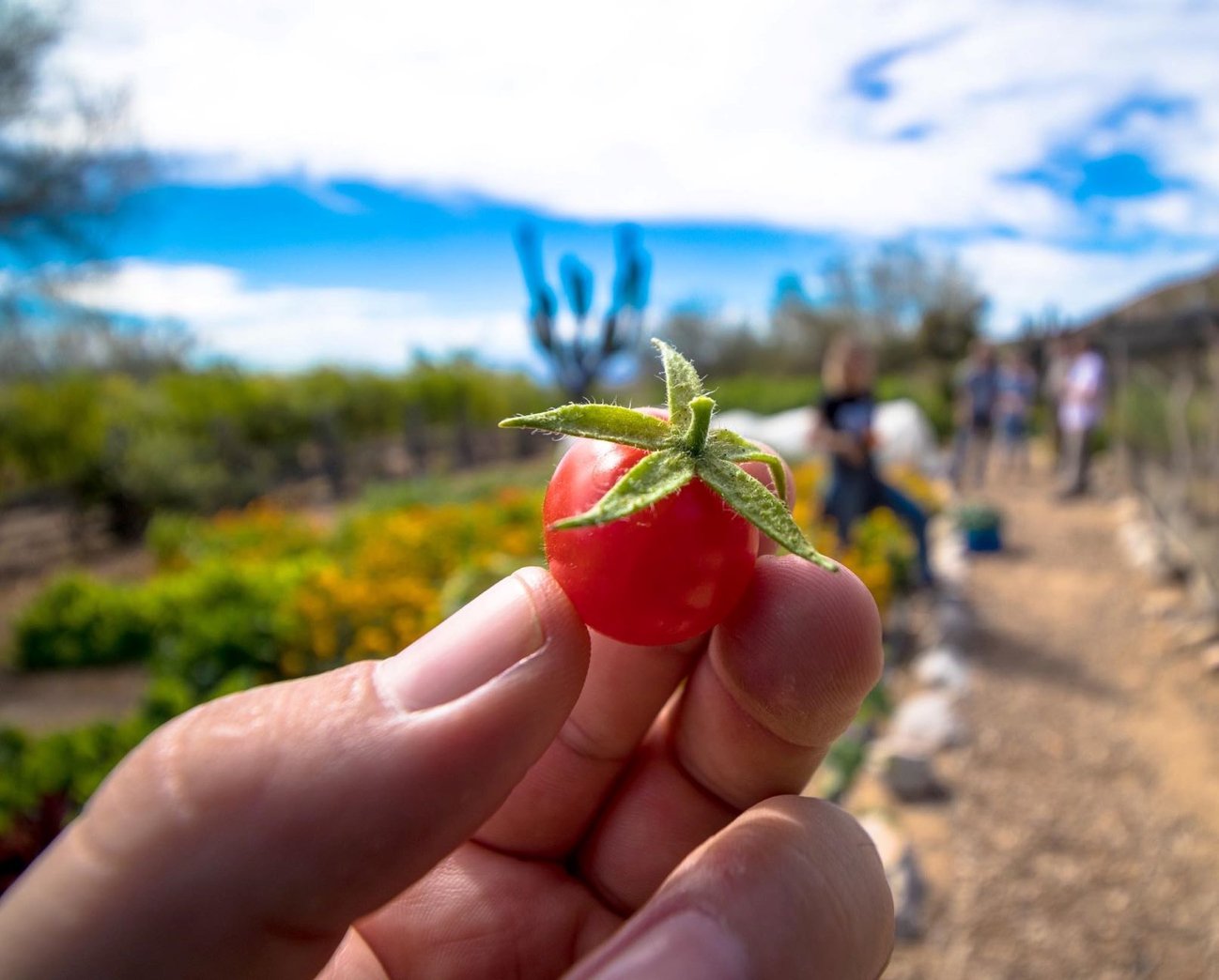
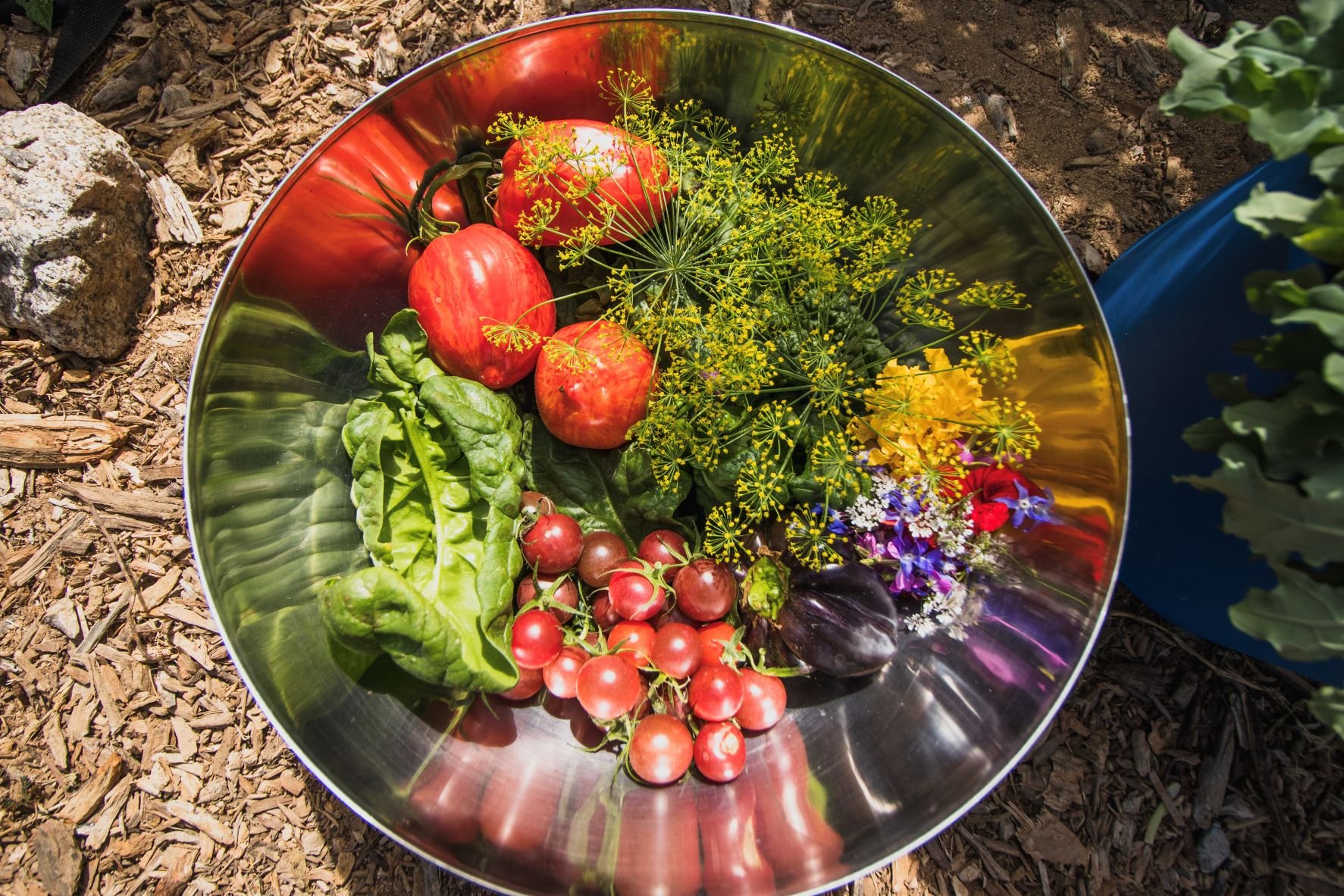
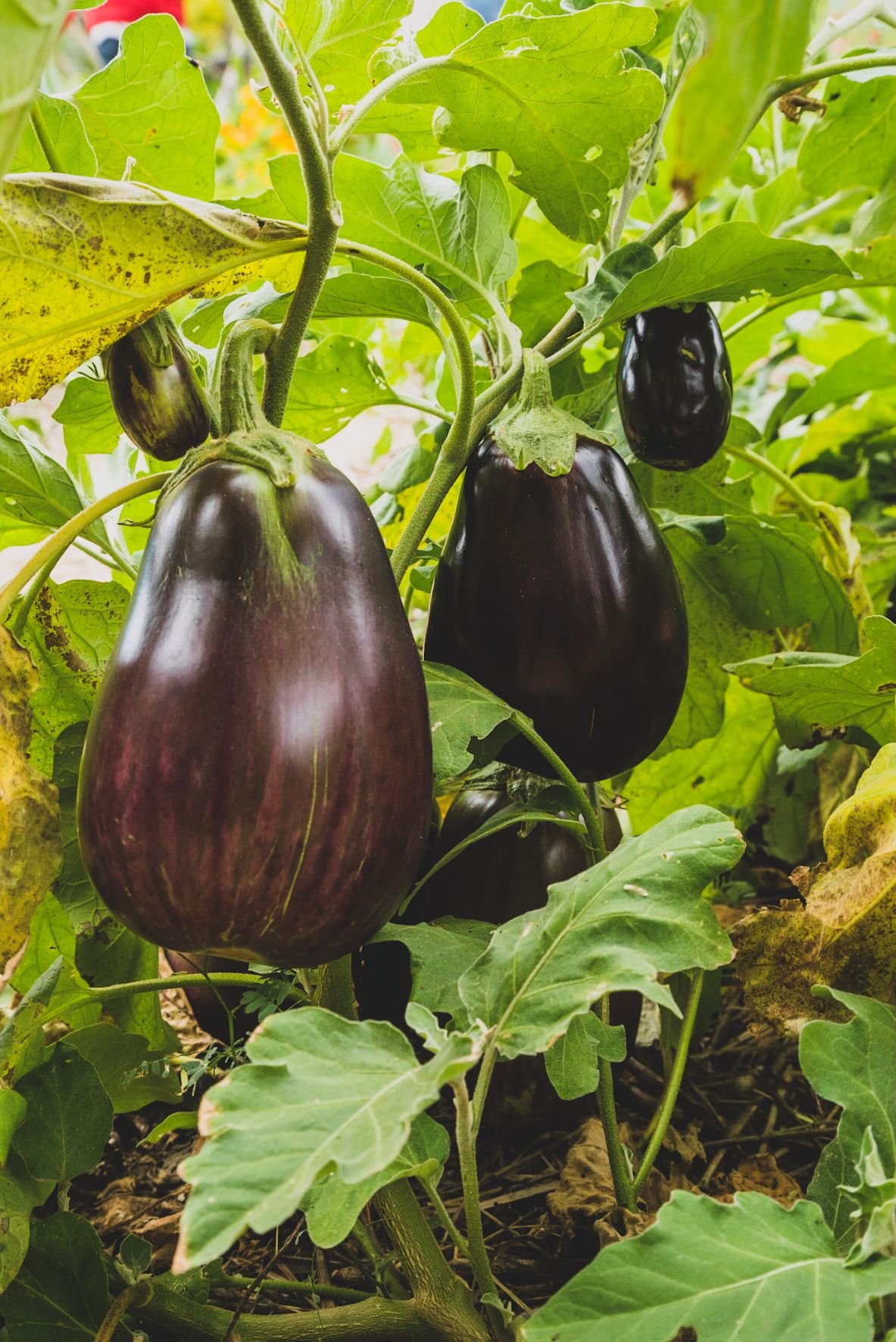
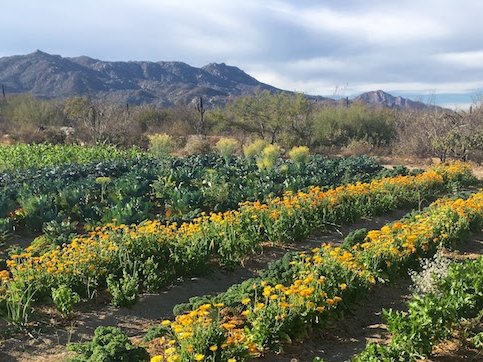
We collect and save our own seeds at the end of crop cycles. We use our own livestock manure as fertilizer and we make our own natural soil-building materials.
By planting one or more crops together that are mutually beneficial — known as intercropping — we create natural barriers and avoid problems associated with monoculture farms, where pests can easily feed, reproduce and move through an entire field. At times, we also use homemade solutions, such as fermented garlic, to help fight against insect and fungal pests.
In the heat of the sun, we use shade cloths and drip irrigation tape to protect our crops from burning rays and to cut back on the amount of watering that is needed. We manage rainwater catchment and infiltration systems, and we experiment with various types of crops to find ones that require less water to cultivate. See more about how we manage the region's watersheds.
Permaculturists Jessica Linebarger and Cameron Dalton (at left above) manage the gardens and permaculture designs throughout our ranches. They follow nature's examples to create lasting and regenerative systems. By connecting various ecological processes, they minimize labor, increase productivity and regenerate our natural landscapes. As a result, our gardens are healthier for us, our consumers and our ecosystems. Be sure to contact our Hub to learn about the garden tours and workshops that we offer.
Introduction to our Regenerative Agriculture Work Program
Choose the best place for your garden
Garden Site Preparation
How to sow and water
How to make compost
How to turn your compost
Introduction to Cover Crops
Visiting school groups are offered the chance to plant vegetables with their own hands and have fun learning about organic gardening and producing tasty, healthy foods.
We often work with local communities and organizations as we research best methods and resources, and share knowledge.




